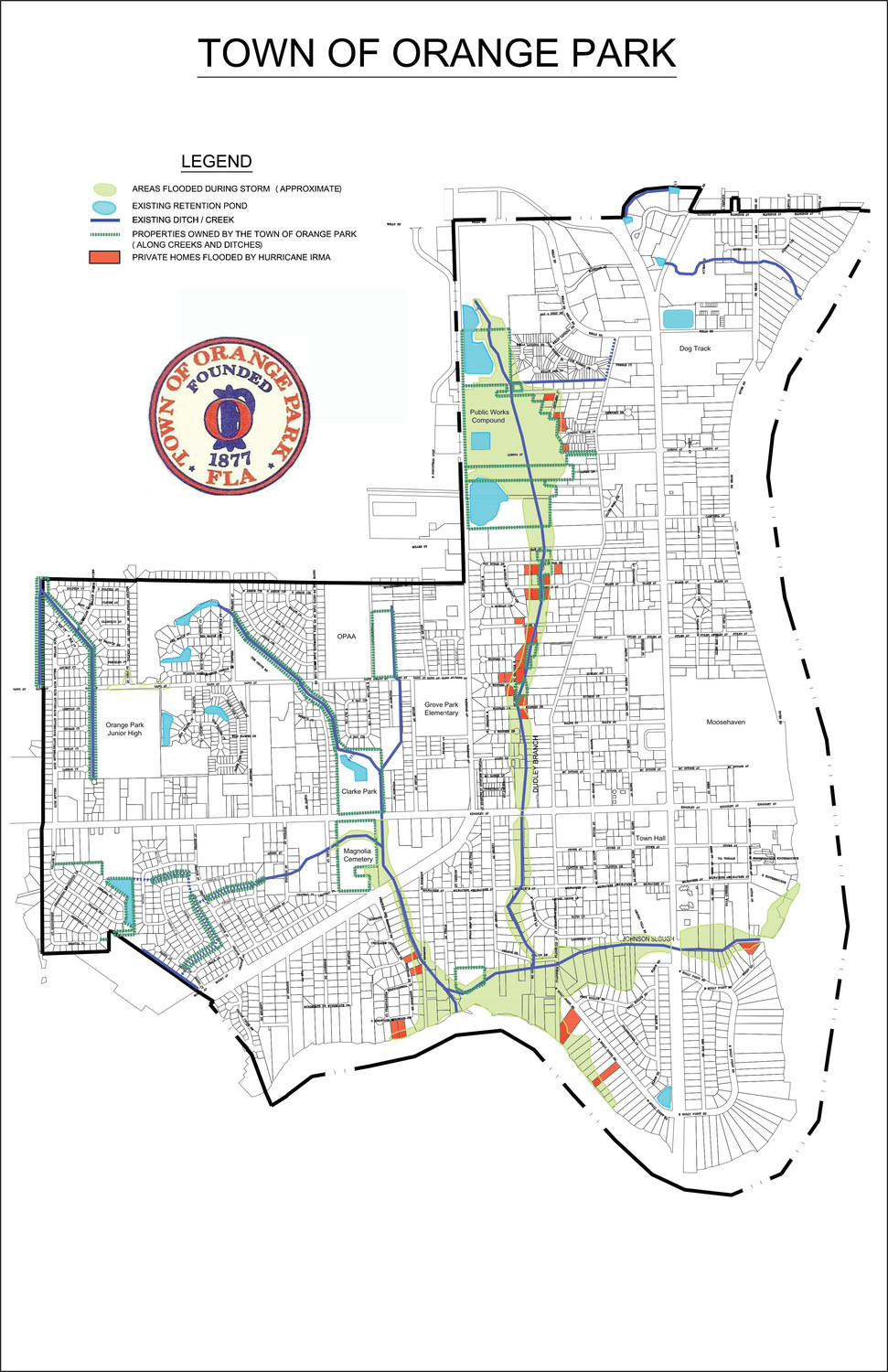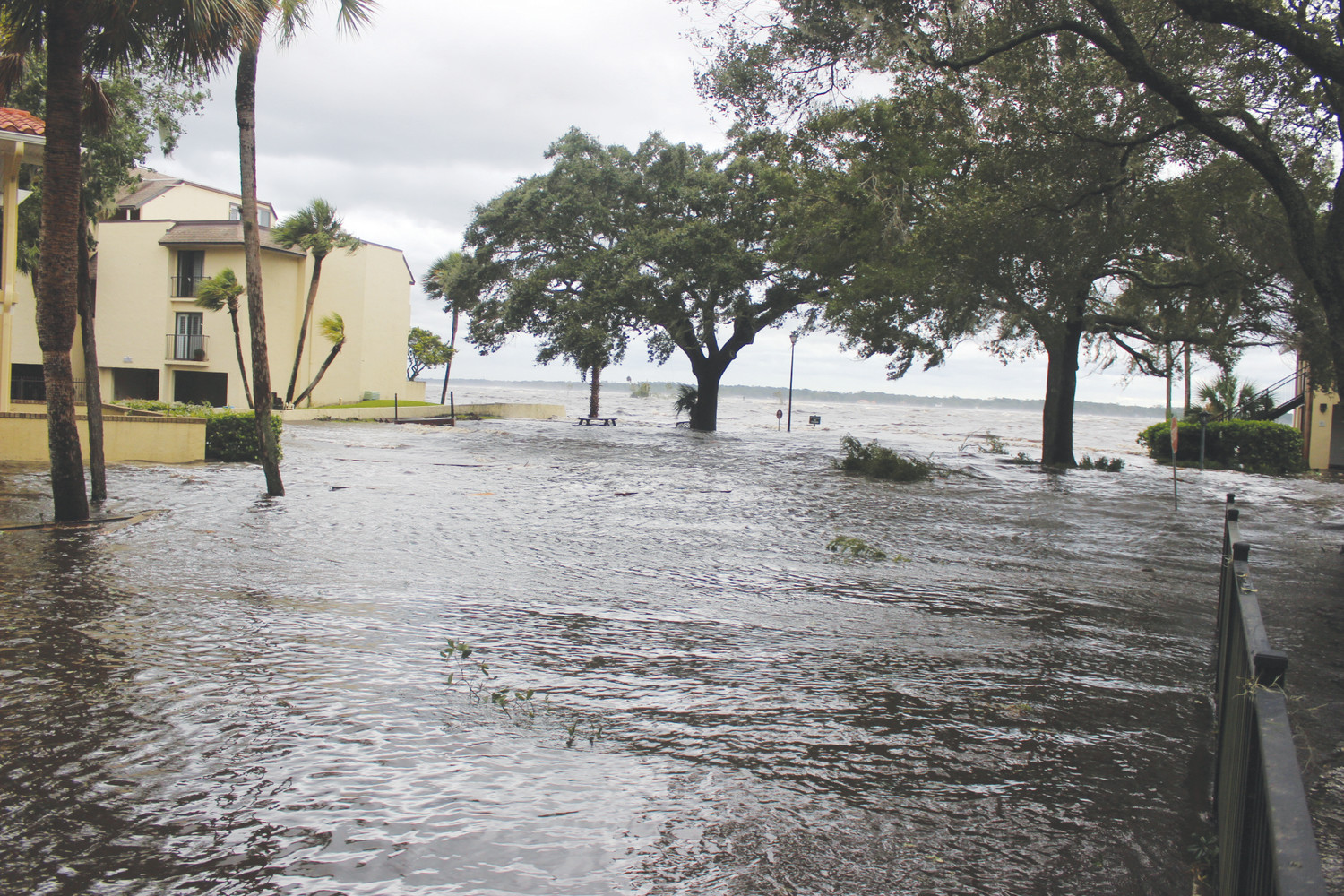Council looks to fend off future flooding
ORANGE PARK – A study will soon get underway to determine how to prevent creeks, sloughs and other waterways within the Town of Orange Park from flooding during future prolonged storms and …
This item is available in full to subscribers.
Attention subscribers
To continue reading, you will need to either log in to your subscriber account, or purchase a new subscription.
If you are a current print subscriber, you can set up a free website account and connect your subscription to it by clicking here.
If you are a digital subscriber with an active, online-only subscription then you already have an account here. Just reset your password if you've not yet logged in to your account on this new site.
Otherwise, click here to view your options for subscribing.
Please log in to continueDon't have an ID?Print subscribersIf you're a print subscriber, but do not yet have an online account, click here to create one. Non-subscribersClick here to see your options for subscribing. Single day passYou also have the option of purchasing 24 hours of access, for $1.00. Click here to purchase a single day pass. |
Council looks to fend off future flooding

ORANGE PARK – A study will soon get underway to determine how to prevent creeks, sloughs and other waterways within the Town of Orange Park from flooding during future prolonged storms and hurricanes.
Town Council, in a special called meeting Oct. 30, voted to direct town staff to investigate and mitigate issues in the town’s storm water system sooner, rather than later.
The meeting comes on the heels of Hurricane Irma, whose combination of storm surge and heavy rainfall drowned houses along many of the creeks and canals that run through and under the town.
Council members allocated $70,000 in this fiscal year to fund a storm water master plan that will identify problems with the current system and suggest potential fixes.
In the interim, the town would attempt to study and potentially fix problems that may have contributed to home flooding during the hurricane, such as waterways clogged with debris from prior storms and culverts blocked with sand and silt.
For example, where Dudley Branch moves underneath Kingsley Avenue, the town would like to check the culverts to ensure that the stream is flowing clearly. If it’s not, another storm would exacerbate flooding north of Kingsley along the stream.
Anxiety of another storm, however, has made the mission to remedy the town’s storm water system immediate.
There’s just one problem – funding.
The town has approved a contractor to ‘snag and drag’ storm debris from Winfred Drive to Claire Lane. Depending on the contract’s performance, the town may approve more debris cleanups throughout other waterbodies in the town.
The town has applied for a grant from the United States Department of Agriculture for emergency waterway clearing to remove this debris. If approved, the grant would cover 75 percent of the cost of technical and physical costs for these cleanups. If it’s not approved, clearing these waterways of storm debris may become a bit more difficult, because the town can only apply for funding from the Federal Emergency Management Agency for debris created by Hurricane Irma. Many of these streams have had debris in them for years, according to the homeowners who live adjacent to them.
Many of these homeowners have attended meetings to voice their concerns about this debris in the past – and even more have come out to speak on the problem’s behalf since Hurricane Irma in September.
“If we don’t get funded by another agency, that’s going to be a longer process for us to get funding, so we will clean out waterways as we can,” said Town Manager Sarah Campbell.
The town is also considering dredging projects to lower the water level in problem areas. This would be costly and time consuming. To dredge Johnson Slough – three blocks south of town hall – the council estimates, could cost just shy of $100,000.
One way to pay for this work would be to put certain projects identified in this fiscal year’s Capital Improvement Plan on the back burner to free funding for these immediate needs.
One reason a reevaluation of priorities may be needed is that by the time a storm water master plan is finished and mitigation projects identified, hurricane season will be right around the corner. Atlantic Hurricane Season runs from June 1 to Nov. 30.
“I think that the council is interested in revisiting the CIP and reevaluating what they see as a priority for the next few years,” Campbell said. “We haven’t reprioritized anything at this point.”
Councilman Ron Raymond suggested that the council scrap the already-awarded project to remodel Kingsley East from U.S. Highway 17 to River Road to pay for the project.
When he polled the council for support and found himself as the sole supporter for a measure to delay the beloved project, he used their lack of support of the idea to question council member’s morals and priorities.
“That answers the question. So, four of you think it’s more important that be beautify Kingsley East…?” Raymond said.
The assertion led to a disagreement between Raymond and Council Member Alan Watt that reemerged intermittently throughout the rest of the meeting.
“I continue to be frustrated by Councilman Raymond’s political play on the fact that it’s a beautification project,” Watt said. “There is no beautification in the project…we’re fixing the road, we’re fixing the drainage…it would be a huge step backwards and we’ve got other financial sources.”
Council Member Gary Meeks said more discussion on reprioritizing capital projects needs to take place.
“We don’t want a knee jerk reaction, but we want this kind of dialogue and we need to do it about every two weeks until we get it solved,” Meeks said.
Council members also hope to have a meeting with Florida Department of Transportation representatives to take care of portions of projects that fall under their supervision. This would include where Dudley Branch crosses Kingsley Avenue.
Meanwhile, homeowners along Dogwood Drive believe that their deeds show that the DOT owns a waterway behind their homes. If that is the case, the town would have to reach out to DOT before clearing that waterway.
At the Oct. 18 Legislative Delegation meeting, Mayor Scott Land asked lawmakers for funding to clean out area waterways that feed into the St. Johns River as a means of reducing flooding during heavy rains or hurricanes.
“As we look to fix this problem, we are realizing that this is a monumental task that is beyond this town’s resources,” Land said. “This help could be in the way of financial help, relaxation of environmental laws that hinder the town from cleaning out these waterways that restrict the flows or even legislation to give the municipalities greater leeway to clean these waterways when located on private property.”








